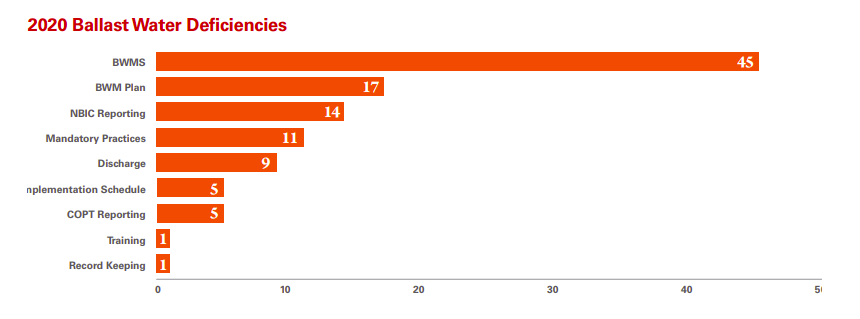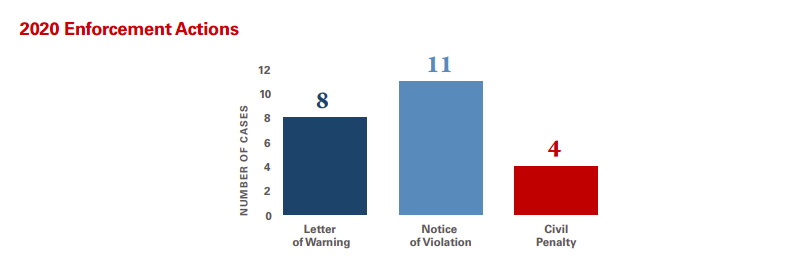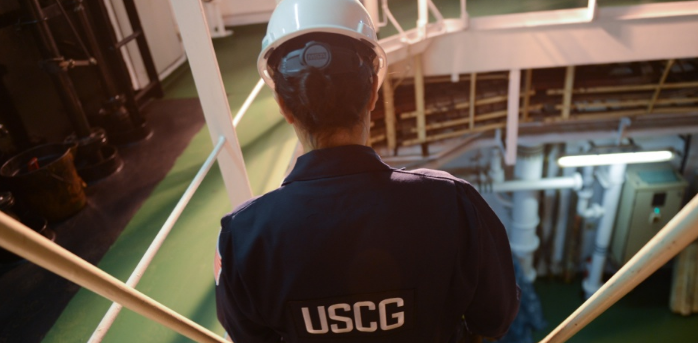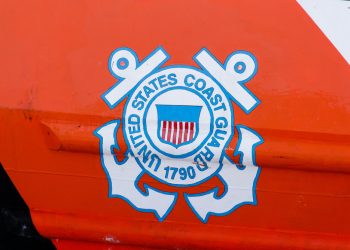In its annual PSC report for 2020 released earlier in May, the US Coast Guard noted greater foreign vessel compliance with ballast water management (BWM) regulations contained in 33 Code of Federal Regulations Part 151, recording a total of 108 BWM deficiencies onboard foreign vessels visiting ports in the US in 2020.
The majority of the deficiencies resulted from vessels arriving with inoperable ballast water management systems (BWMS). Incomplete ballast water management plans (BWM Plan) and failures to report BWM practices to the National Ballast Water Clearinghouse (NBIC Reporting) also ranked high among deficiencies noted by Coast Guard PSC Examiners.
[smlsubform prepend=”GET THE SAFETY4SEA IN YOUR INBOX!” showname=false emailtxt=”” emailholder=”Enter your email address” showsubmit=true submittxt=”Submit” jsthanks=false thankyou=”Thank you for subscribing to our mailing list”]
In the majority of cases where the discharge of ballast water could pose a threat to the marine environment, vessels were required to modify their cargo plans to facilitate safe and compliant ballast water discharges, leading to costly unforeseen port scheduling conflicts.
By incorporating BWM systems into their company Safety Management System, vessel operators can more effectively maintain their crewmembers’ ballast water training and competencies to help ensure the vessel is in compliance when it arrives to port,
…USCG advised.

While the overall number of deficiencies is trending down, Coast Guard enforcement actions taken against non-compliant companies has risen. Enforcement actions in the form of Letters of Warning, Notices of Violation, and Civil Penalties may be used by the Coast Guard to ensure compliance with the mandatory ballast water requirements in order to safeguard the waters of the US.
In 2020, the majority of enforcement actions were issued to vessel operators for the illegal discharge of untreated ballast water, failing to report inoperable systems to the nearest Captain of the Port or District Commander, and failing to make complete, accurate and timely ballast water reports to the NBIC.


































































